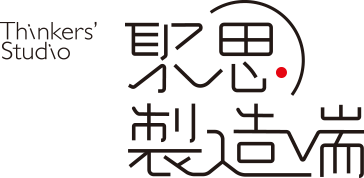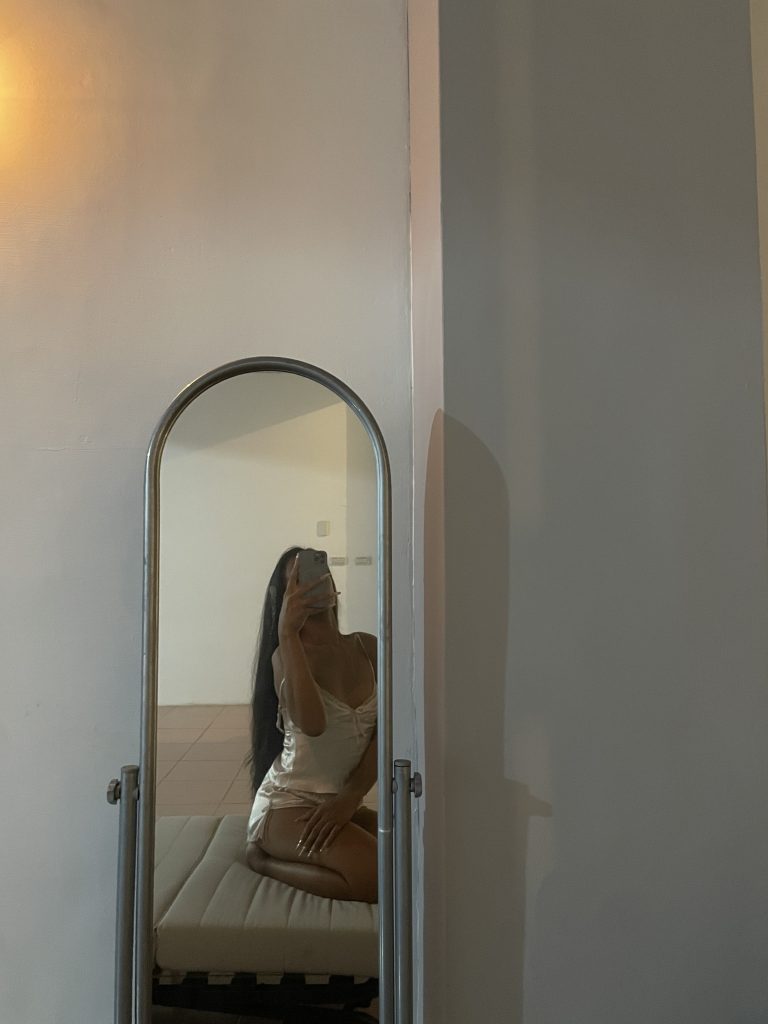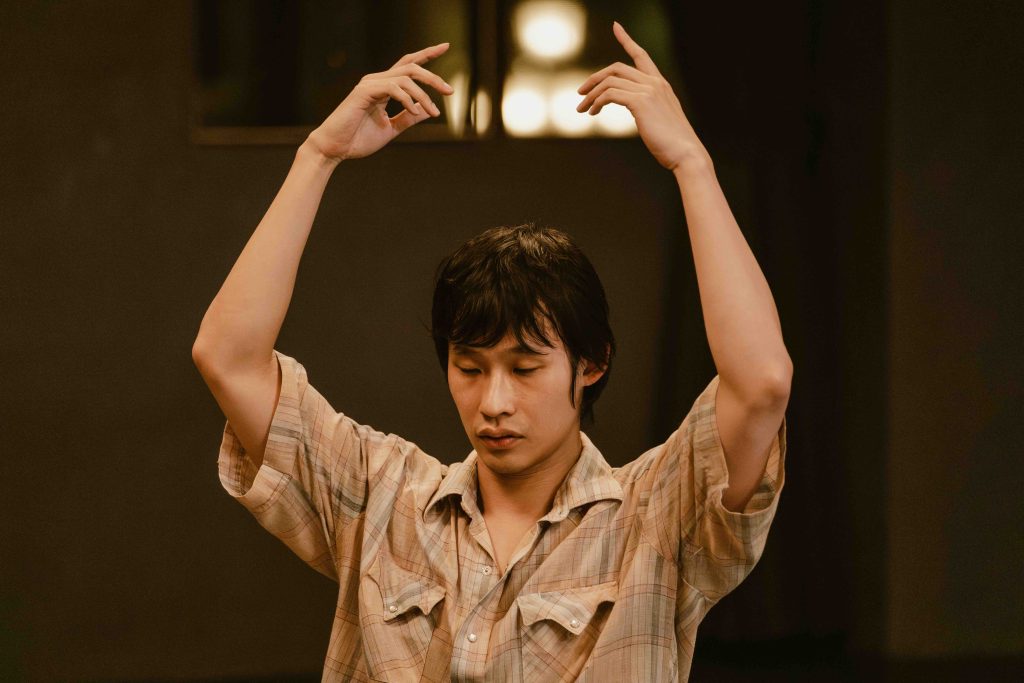書寫觀察員/林之淯
Connect with SEA|泰國場次
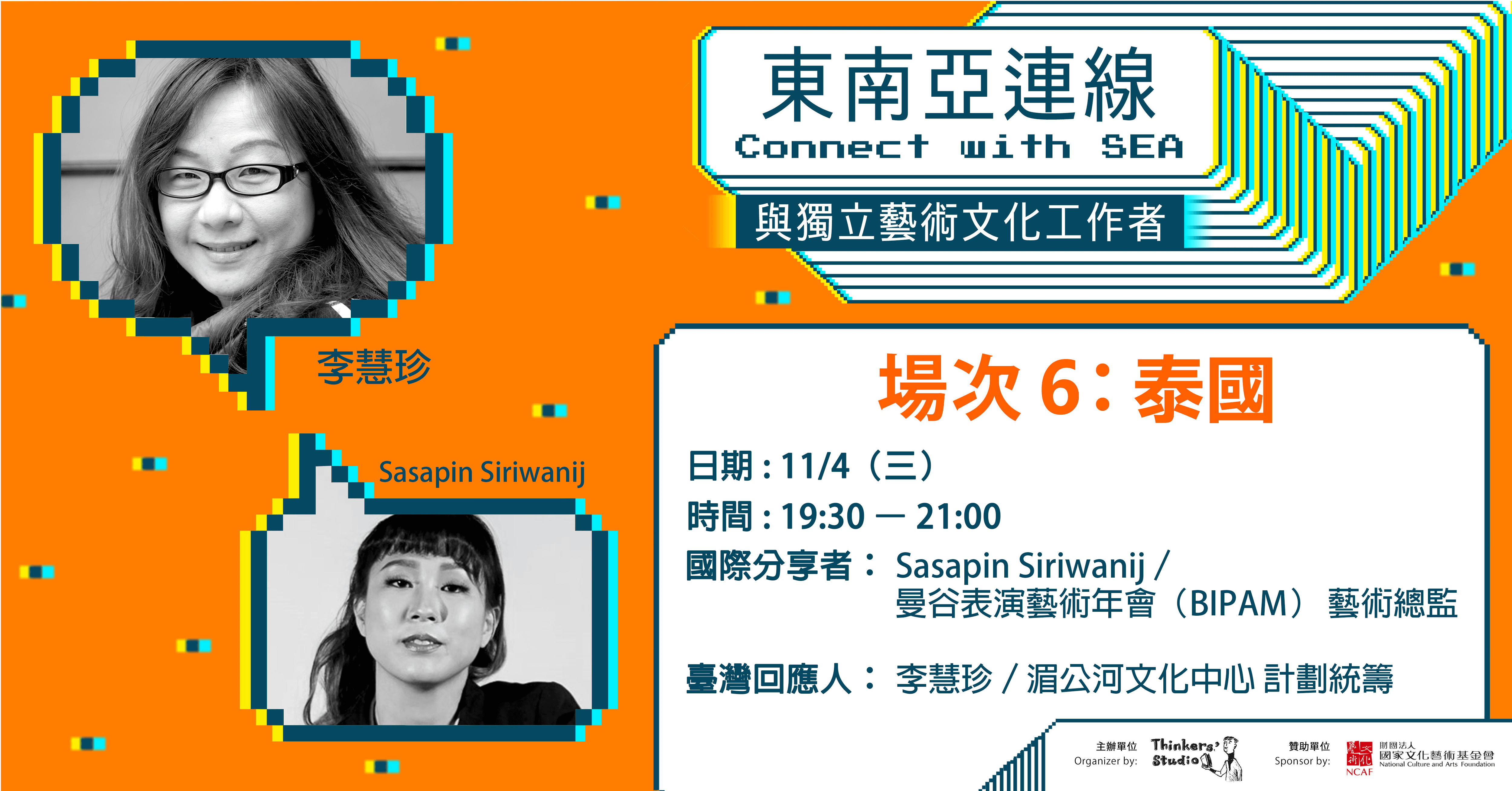
◇ 日期:2020/11/04 (三) 19:30 – 21:00
講者介紹
◇ 國際分享人|Sasapin Siriwanij
曼谷表演藝術年會(BIPAM) 藝術總監。泰國朱拉隆功大學英國文學碩士,大學時期起便開始演出,曾於2017年獲得泰國藝術評論組織最佳女演員獎項,隔年同一作品Oh! Ode (Oh! What Joy, What Goodness, WhatBeauty Calls For Ode No.7012) 該劇以泰國傳統藝術形式討論政治為名,隔年被邀請至第四屆Berliner Herbstsalon 於柏林馬克西姆高爾基劇院(Maxium Goki Theater)演出。Sasapin Siriwanij除演員身分之外,也是B-Floor劇場核心成員/獨立劇場藝術家與製作人。2018年起擔任BIPAM曼谷藝術節總監,同時亦為泰國表演藝術網絡(POTPAN)的共同創辦暨製作人。
◇ 台灣回應人|李慧珍
從事表演藝術及文化推廣工作逾二十年,參與製作推廣、劇場管理、人才培育及藝術管理教育工作;目前於湄公河文化中心工作,擔任計劃統籌,居於北台灣。專案工作包括臺灣及國際數個城市的演出製作、劇場管理、藝術節統籌及專業知識交流與課程講授。2008年至2019年期間,於大學藝術相關科系兼課,主要講授製作管理及藝術行銷。2001至2011年期間,於聚光工作坊擔任製作總監,期間承接政府委託,曾於七個劇場負責該劇場的技術管理與前台服務專案。近年持續關注與倡議文化產業應建立永續發展的產業生態,藝術的社會參與及實踐,專業人才的在職培育進修管道與機制,以及區域間的跨文化交流與合作。現任TATT、PANDA、PAA等單位的理事。
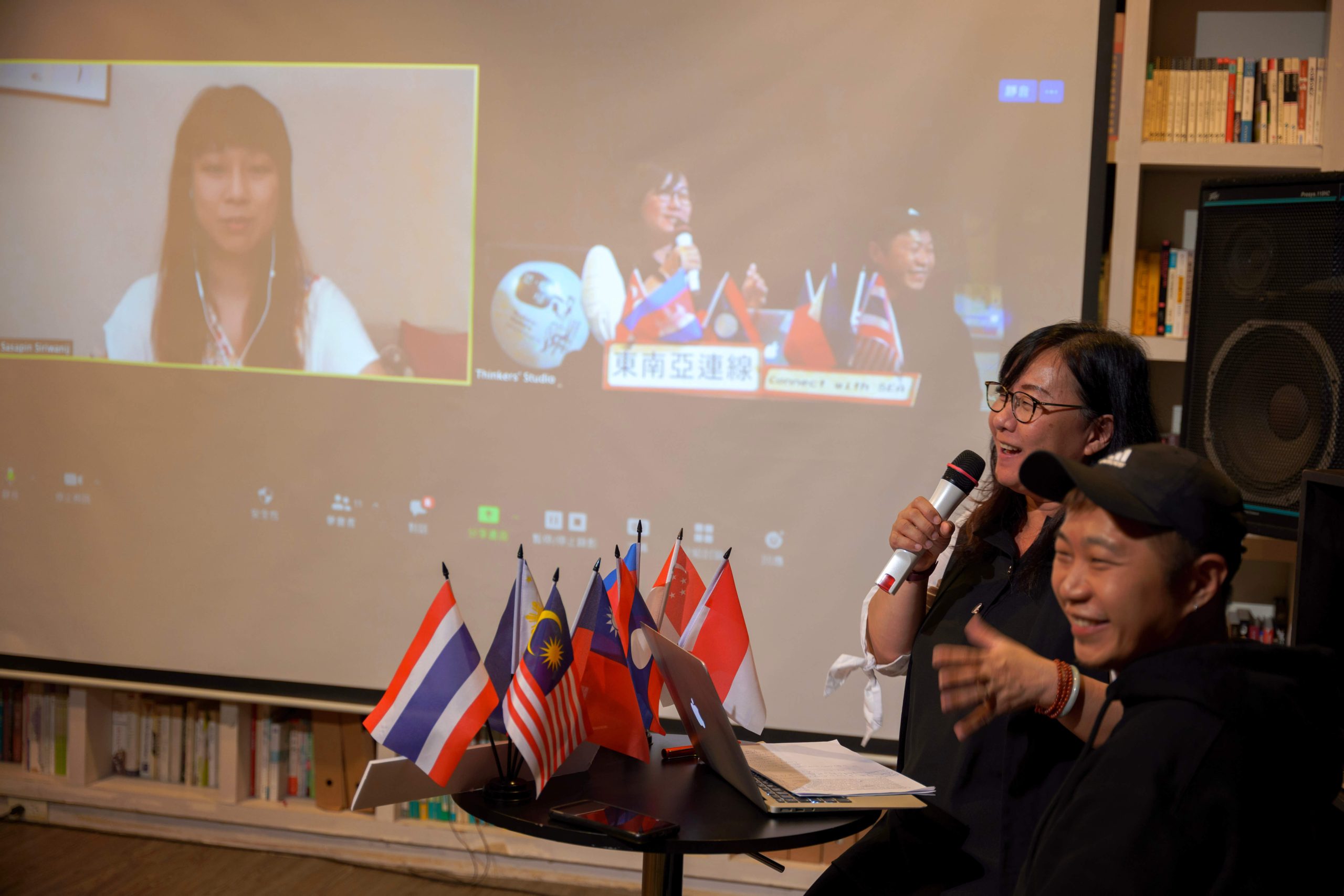
連線內容:
被「隱身」的當代藝術/劇場
泰國現今的劇場表演,可分為傳統劇場、商業劇場、獨立劇場三種類別;傳統劇場如舞劇、戲曲等傳統表演藝術形式,商業劇場則有如觀光展演、音樂劇演出等,以及以當代劇場為主的獨立劇場。而泰國當代劇場的發展,可追溯自1960年代,那也是泰國民主運動正風起雲湧的時刻。
雖然當代藝術/劇場在泰國發展已久,但直至今日,泰國政府對於當代藝術/劇場,仍沒有相應的藝文補助與政策,這也是為何講者會提到,當代藝術/劇場,仍處在一個政府、社會「不認可」的狀態。即便泰國政府架構下有文化部(Ministry of Culture),以及文化部轄下的當代藝術與文化辦公室(Office of Contemporary Art and Culture);但由於其對「藝術的定義」,仍有非常僵固的想像;因此在藝術工作者與政府對藝術的想法有「差距」的情況下;在公部門方面,反而比較容易從泰國會議展覽局(TCEB,Thailand Convention and Exhibition Bureau)取得相應的資源;另一方面,其他資源多來自如:工作者本身投入的資金、文化機構的贊助,以及共製單位等。在缺乏公部門的支援下,藝術工作者又要如何生存下來呢?其實直至今日,仍只有非常少數的職業劇團,能在泰國永續運營;大部份的藝術家與藝文工作者,常是需要身兼多職,維持生計。
曼谷國際表演藝術會議
曼谷國際表演藝術會議(BIPAM,Bangkok International Performing Arts Meeting)成立於2018年,原先是曼谷戲劇節(BTF,Bangkok Theatre Festival)的其中一個環節活動,近幾年逐漸發展成聚焦在東南亞區域表演藝術的國際平臺。2020年,因新冠肺炎疫情肆虐,改成線上活動「BIPAM- Under the SEA」;共邀集了11位來自不同領域、不同地區的藝文工作者進行線上討論。
新冠肺炎疫情與藝文產業
在「東南亞連線:與獨立藝文工作者」跨國連線座談-泰國場辦理的2020年11月04日,泰國已經將境內新冠疫情控制住;但到了12月中,僅僅過了一個多月,泰國國內再次迎來第二波疫情;在12月19日,全國境內單日確診人數又再度來到三位數;因此,疫情相關對藝文產業所造成的影響,仍難以估計。也回應到前述提到,泰國一直以來缺乏官方藝文補助,因此即便在動盪的2020年,也沒有提供給藝文工作者,相應的紓困補助。新冠肺炎作為一個突然的衝擊,對原來就脆弱的藝文環境造成更嚴重的影響;對於泰國藝術工作者來說,永遠保持一個彈性、可調整的狀態,才能一直擁有面對多樣、乖揣挑戰的能力。另一方面,同樣也是回應到近期泰國社會的政治狀況,自2020年2月開始,延續至今的社會運動,藝文社群又是如何組成「Free Act」團體,支持民主運動,與民眾站在一起,也是今日泰國藝術工作者的挑戰之一。
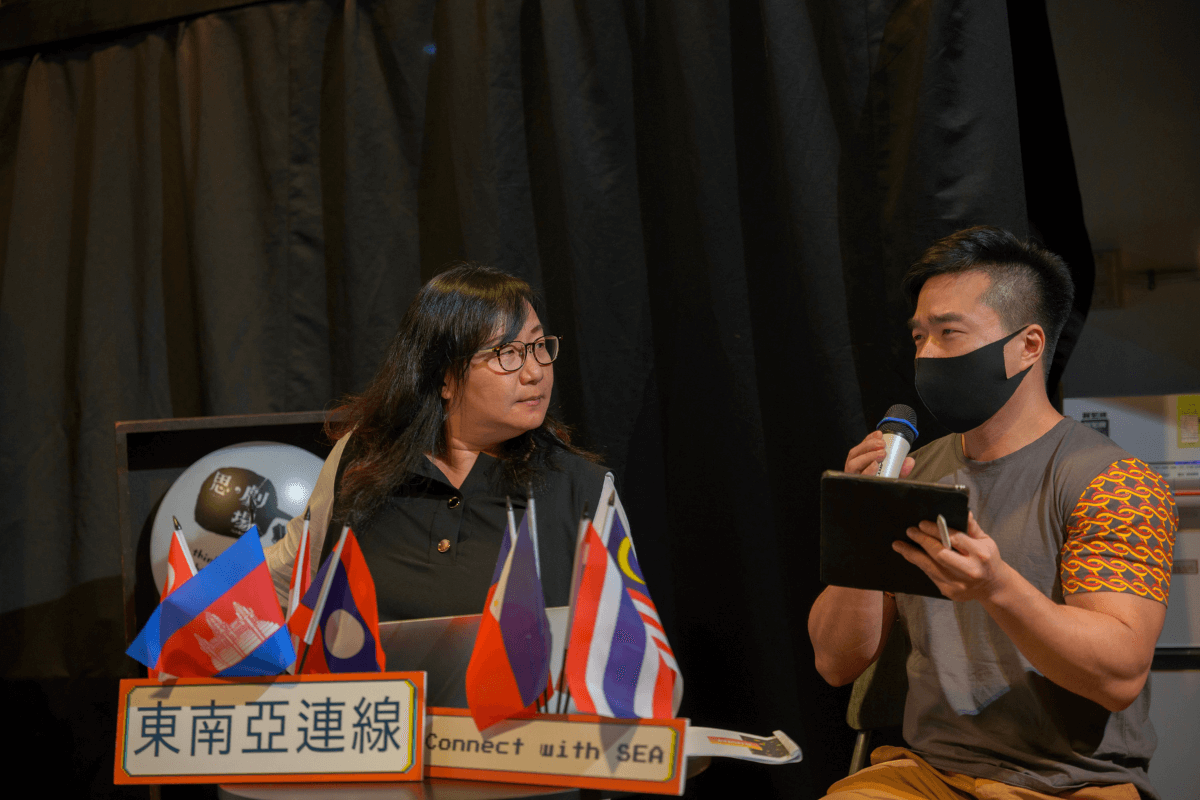
Thailand’s Cultural And Creative Industry Growing and Glowing
Writer|Melody Wagner
The penultimate talk in the SEA conversation was perhaps the most engaging and interesting. It featured a conversation with a culture and creative industry representative from Thailand. Sasapin Siriwanij(Pupe) is the creative director for the Bangkok International Perfoming Arts Meeting – BIPAM. The relatively new platform will be hosting it’s fourth meeting in 2021. Pupe is also a Thai theatre artist, her presentation gave perspectives as both a Thai artist and an art administrator/ academic.
The pre-COVID art industry reality in Thailand is similar to other SEA Countries, which is that the Government does not necessarily support art work and artists, by extension most of the population are unaware of the value of art. Pupe explained that there were no art specific funding mechanisms or departments within the governmental structure. Art is often tied to entertainment with most artists having to maintain day jobs to survive.
Her area of participation is in Independent theater which can be linked with contemporary theatre whose introduction and bloom is connected to democracy campaigns that began in the 1960’s. To date, there are very few professional theatre companies. BIPAM is born out of the Bangkok Theatre Festival, which is held annually in the month of November. However, though it began as an international dimension to the festival, it slowly took on a life of its own and has now become a diverse platform that has also taken the responsibility of advocating for artists which was an area that was missing. Following it’s first year, BIPAM has grown into a platform for international networking between Thai performers and South East Asian performers. Small funding comes from Thailand Convention and Exhibition Bureau, it is not registered as a legal entity and does not have an official office.
In the bigger picture as it relates to the pandemic, though at the start, they were one of the harshly hit countries, it has been in recovery and they have not had a domestic case in months. The country was in lock down from March to May and there were no dedicated relief funds or schemes for the arts. There was only a general relief fund, that was launched online, Pupe shared the complexities and challenges that came with it. The sum was 5000 for 3 months.
There was one online theatre project, “Co With Us” which was supported by the government but initiated by independent artists. The budget provided for the project was so limited that what was spent to make the piece was as much as what was provided. So the initiative according to Pupe failed to provide much “support” for the artists involved.
Following the lockdown, artists and artspaces almost immediately got back to work, and since the end of the lockdown there is no clear guidelines in place for art spaces to operate with. Lessons and future plans as they recover from the Thai Pandemic experience includes:
- Adaptability – because the art industry was already struggling, under the pandemic they were able to adapt easily because they were already accustomed to struggling. 2. Re-prioritization – now more than ever they recognize the importance of thoroughly evaluating the impact and need for each project. There is no more space for “just because” projects.
- Getting out on the streets – BIPAM has taken an official stand on politics, and its artists are supporting the pro-democracy movement. There’s a group called “Free Act” which is a group of Artists engaging with the community through art and making connections with them “being with the kind of audience you want”. Hopefully changing the landscape of the audience in the future.
During the Q and A session questions were raised about the role of the University in developing the art scene, to that the responder shared that Performing Arts education is something that is under development with more contemporary and modern ideas slowly being incorporated into curriculum. Other questions were about the role and actions of artists during the democracy movement, actions included performances, music and keeping the movement going through artistic means.
Looking forward with all that has happened, Pupe expressed hope for where the industry will be and what it is becoming. She looks to the future positively and sees only growth for the industry

